![]()
By Gypsy Blue Rose

| Author Note: | If You Would Like To Join the Japanese Poetry Club, please check my author notes |
Playing with dolls as a child didn’t prepare me to be a teenage single mom. My daughter, Angelica, was very demanding and full of energy. I was up all night and tired all day. Bathing, feeding, dressing, and watching her kept me constantly busy but I loved her more than anybody else in the world so I didn't complain. It was all part of being a mom.
Angelica's blue eyes were beautiful like my dad's and mine. It was the only thing I loved about myself. Her fair skin and blond hair are not what American people expected when they found out we were Hispanic. But in Spain light color features are common. My accent sounded European and although I have spent most of my life in California, I still have it. I spoke English at home thinking that if I spoke Spanish it would confuse her but I was wrong. Children have the capacity to learn several languages at a time; however, she learned some Spanish from my aunt when she babysat for me.
tender plum bud
cuddled in nurturing boughs —
spring blossom
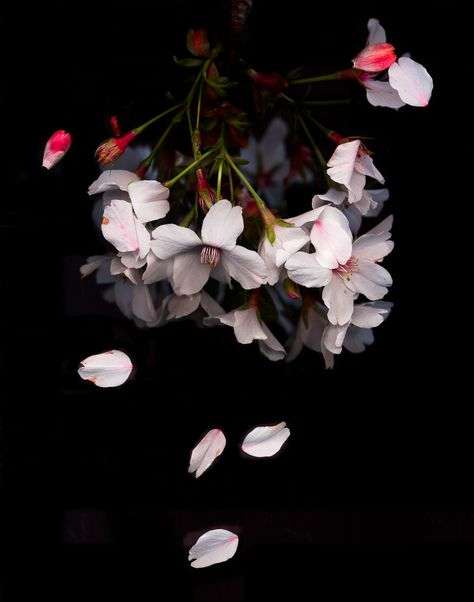
| Author Notes |
HAIBUN SUMMARY: is a Japanese poetic form that combines prose and haiku. The prose is usually descriptive and succinct. Try not to repeat words. For this Japanese Poetry Club event, I'm going to keep it simple, one to three paragraphs. See my links for more detailed haiku rules. Evoke the senses (touch, see, hear, taste, smell). Write in the present or past tense. It uses poetic devices and word imagery (mental picture). The prose section is followed by a haiku that serves to deepen the meaning of the prose. The most famous haibun writer was Matsuo Basho who wrote 'Oku no hosomichi' (Narrow Road to the Interior) in the 17th century. Resources: *** HAIBUN GUIDELINES *** HAIBUN EXAMPLES *** for wikipedia definition click here ==== HAIBUN DESCRIPTION
Thank you very much for reading and reviewing my poem, Gypsy "Learn the rules like a pro, so you can break them like an artist." - Picasso the picture is my daughter, Angelica |
![]()
By Gypsy Blue Rose
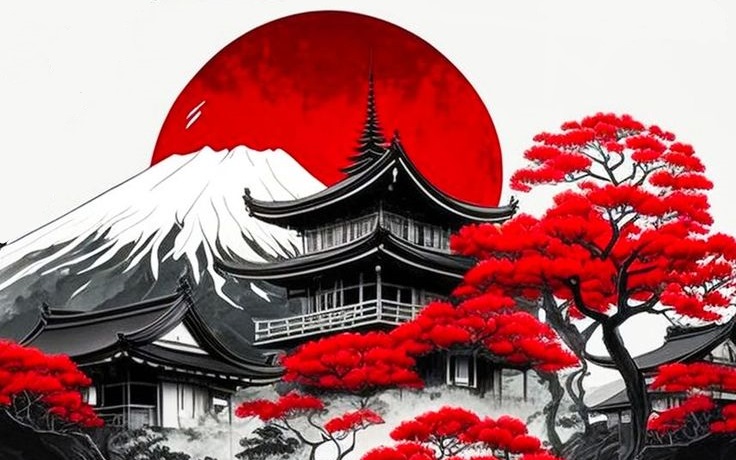
| Author Note: | If You Would Like To Join the Haiku Club, please check my author notes |

| Author Notes |
This week we are learning about Zen Haiku. If you would like to join the Haiku Club click here Zen Haiku is the original haiku. Zen Buddhism is the philosophy that nature and humans are interconnected. Haiku Master, Matsuo Basho said, "to learn about trees, be a tree". Human suffering comes from the false feeling of being alone and disconnected. The truth is that we are all ONE.
HAIKU is a Japanese short unrhymed poem that uses imagistic language to express the essence of a deeply felt moment in time. It resonates on a deeper level, leaving the reader enlightened and making an insightful connection between the top two lines and the last one, called the SATORI. It originated in the thirteenth century and was mastered a century later by Matsuo Basho. HAIKU uses a dash to pause before the SATORI.. Haiku is about nature and it alludes to a season of the year. The haiku is written from an observer's point of view. In Japan, haiku is written in 17 syllables and three lines ( 5/7/5) but in English is 17 syllables OR LESS because English syllables are longer than Japanese syllables. Avoid capitalization (except proper names) and punctuation. Avoid metaphor and personification, you write about what you can SEE. === click here to read Haiku Society of America, HAIKU EXAMPLES === click here to read Haiku Society of America HAIKU RULES === click here to read why is 5/7/5 OR LESS rule === Modern Haiku Thank you very much for taking the time to read and review my poem. Gypsy "Poetry heals the wounds inflicted by reason." - Novalis picture from pinterest |
![]()
By Gypsy Blue Rose

| Author Note: | If You Would Like To Join the Japanese Poetry Club, please check my author notes |
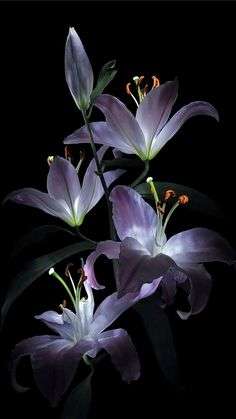
| Author Notes |
WABI-SABI is a way of living that focuses on finding beauty within the imperfections of life and accepting peacefully the natural cycle of growth and decay. When the Japanese mend broken objects, they aggrandize the damage by filling the cracks with gold. They believe that when something's suffered damage and has a history it becomes more beautiful. =click here for more information
HAIKU is a Japanese short unrhymed poem that uses imagistic language to express the essence of a deeply felt moment in time. It resonates on a deeper level, leaving the reader enlightened and making an insightful connection. It originated in the thirteenth century and was mastered by Matsuo Basho. = click here to read Haiku Society of America HAIKU RULES Thank you very much for taking the time to read and review my poem. Gypsy "Poetry heals the wounds inflicted by reason." - Novalis picture from pinterest |
![]()
By Gypsy Blue Rose

| Author Note: | If You Would Like To Join the Japanese Poetry Club, please check my author notes |

| Author Notes |
WABI-SABI is a way of living that focuses on finding beauty within the imperfections of life and accepting peacefully the natural cycle of growth and decay. When the Japanese mend broken objects, they aggrandize the damage by filling the cracks with gold. They believe that when something's suffered damage and has a history it becomes more beautiful. ===
click here for more information Tanka is a Japanese unrhymed poem having about 12 to 31 syllables usually arranged in five lines and read in about two breaths in length when read aloud. The first poets who wrote tanka imitated the Japanese models of a 5-7-5-7-7 syllabic structure in five lines. This resulted in poems that were too long in comparison to Japanese tanka. The first tanka were padded or chopped to meet the fixed number of syllables. Additionally, the third line must transition from the descriptive and image-focused beginning lines into a reflective metaphor, simile, or personification for the closing lines. The subject matter varies, but most tanka are emotionally stirring or profound, and many are about love. click here if you want to read modern tanka examples === click here to read Tanka Society of America === click here if you want to read modern tanka rules Thank you very much for your time and kind review. Gypsy "The poet waits quietly to paint the unsaid." --Atticus pictures from pinterest |
![]()
By Gypsy Blue Rose

| Author Note: | Inspired by Barbara Wilkey's characters: Seth and Emma |

| Author Notes |
The week's event in the Women Writers Club is Love And Relationships
My poem was inspired by Emma and Seth characters in Barbara Wilkey's book 'Guided by Faith' Thank you for taking the time to read and review my poem Gypsy |
![]()
By Gypsy Blue Rose

| Author Note: | If You Would Like To Join the Haiku Club, please check my author notes |
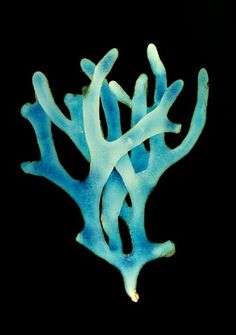
| Author Notes |
Tropical Storm Hilary is hitting Southern California hard. Thankfully, so far my family and I are safe.
HAIKU is a Japanese short unrhymed poem that uses imagistic language to express the essence of a deeply felt moment in time. It resonates on a deeper level, leaving the reader enlightened and making an insightful connection between the top two lines and the last one, called the SATORI. It originated in the thirteenth century and was mastered a century later by Matsuo Basho. HAIKU uses a dash to pause before the SATORI.. Haiku is about nature and it alludes to a season of the year. The haiku is written from an observer's point of view. In Japan, haiku is written in 17 syllables and three lines ( 5/7/5) but in English is 17 syllables OR LESS because English syllables are longer than Japanese syllables. Avoid capitalization (except proper names) and punctuation. Avoid metaphor and personification, you write about what you can SEE. === click here to read Haiku Society of America, HAIKU EXAMPLES === click here to read Haiku Society of America HAIKU RULES === click here to read why is 5/7/5 OR LESS rule === Modern Haiku Thank you very much for taking the time to read and review my poem. Gypsy "Poetry heals the wounds inflicted by reason." - Novalis |
![]()
By Gypsy Blue Rose
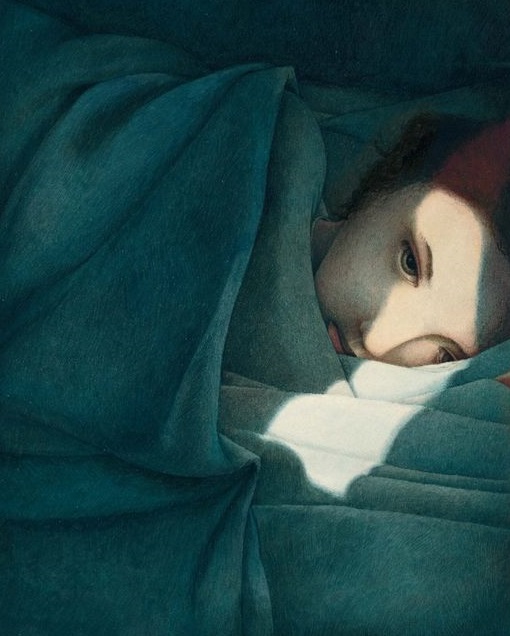
| Author Note: | If You Would Like To Join the Japanese Poetry Club, please check my author notes |
I’m not getting out
of my wicked bed today —
the sun shines outside
but my room is dark
and it’s only God and I
waiting for the call
that I know will never come —
it’s just me and the empty
pill bottles midst love poems

| Author Notes |
988 Suicide & Crisis Lifeline
The 988 Lifeline provides 24/7, free and confidential support for people in distress, prevention and crisis resources for you or your loved ones, and best practices for professionals in the United States. KOJIKI is the oldest poetic form that dates back to 712. It's divided into three parts: upper 5/7/5 - middle 5/7/5 - lower 7/7/7 syllables. Originally, the theme was history and mythology but for modern Kojiku you can use any theme. It uses a kigo (seasonal reference) ; click here to see list of seasons ; wikipedia Thank you very much for reading and reviewing my poem. Gypsy |
![]()
By Gypsy Blue Rose

| Author Note: | For My Crush |
empty coffer—
I offer you all I have
a precious rose and love

| Author Notes |
4/7/6 syllables
SENRYU is a Japanese poem with a title that deepens its meaning. Senryu is similar to Haiku but It's about human nature and it doesn't include a season word (kigo). It's written in three lines with 17 syllables or less. These poems use a pause usually marked by a dash before the satori (an insightful twist to ponder). Alliteration and metaphor are okay. Never rhymes. the em-dash ( -- ) is used to emphasize an interruption in speech before the satori. for more information click here collection of senryu ***** The Haiku Foundation of America Thank you for reading my poem, Gypsy pictures from pinterest |
![]()
By Gypsy Blue Rose

| Author Note: | rules and poem in black font in author notes |

| Author Notes |
The poem in black font= "trip to first home, in the walls young self's laughter"
ONE-LINE HAIKU In Japan was written in the 13th century. Matsuo Basho, Haiku Master, and other contemporary poets wrote one-line poems. It did not take hold in English until the late 1970s, when Marlene Mountain published her first one-line haiku. It's intended to be read as one unbroken line. It does not include forced grammar pauses except in logical punctuation. simply haiku- one line haiku rules and examples Thank you very much for taking the time to read and review my poem. Gypsy "The poet waits quietly to paint the unsaid." Atticus pictures from pinterest |
![]()
By Gypsy Blue Rose
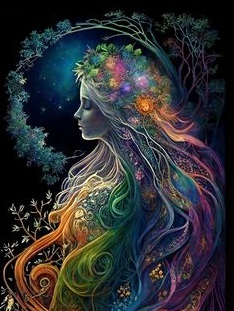
| Author Note: | poem in black font in my author notes |

| Author Notes |
Bloodroot flowers are early spring bloomers found growing wild in the sun in wooded areas. The close-up at night produces beautiful solitary flowers.
POEM IN BLACK FONT touching at sunset, when bloodroots close for the night, consumed by yearning â?? by morning you will be gone and leave me cocooned, again, on your warm side of the bed BUSSO BUSSO (Bussokusekika) is an old rare form of Japanese poetry that consists of six lines written in a 5-7-5-7-7-7 syllables pattern. Created in the 8th century and was written from 710 to 1185. They are usually written about religion or philosophical beliefs but contemporary Busso can be any subject. source Thank you very much for taking the time to read and review my poem. Gypsy "The poet waits quietly to paint the unsaid." Atticus pictures from pinterest |
![]()
By Gypsy Blue Rose
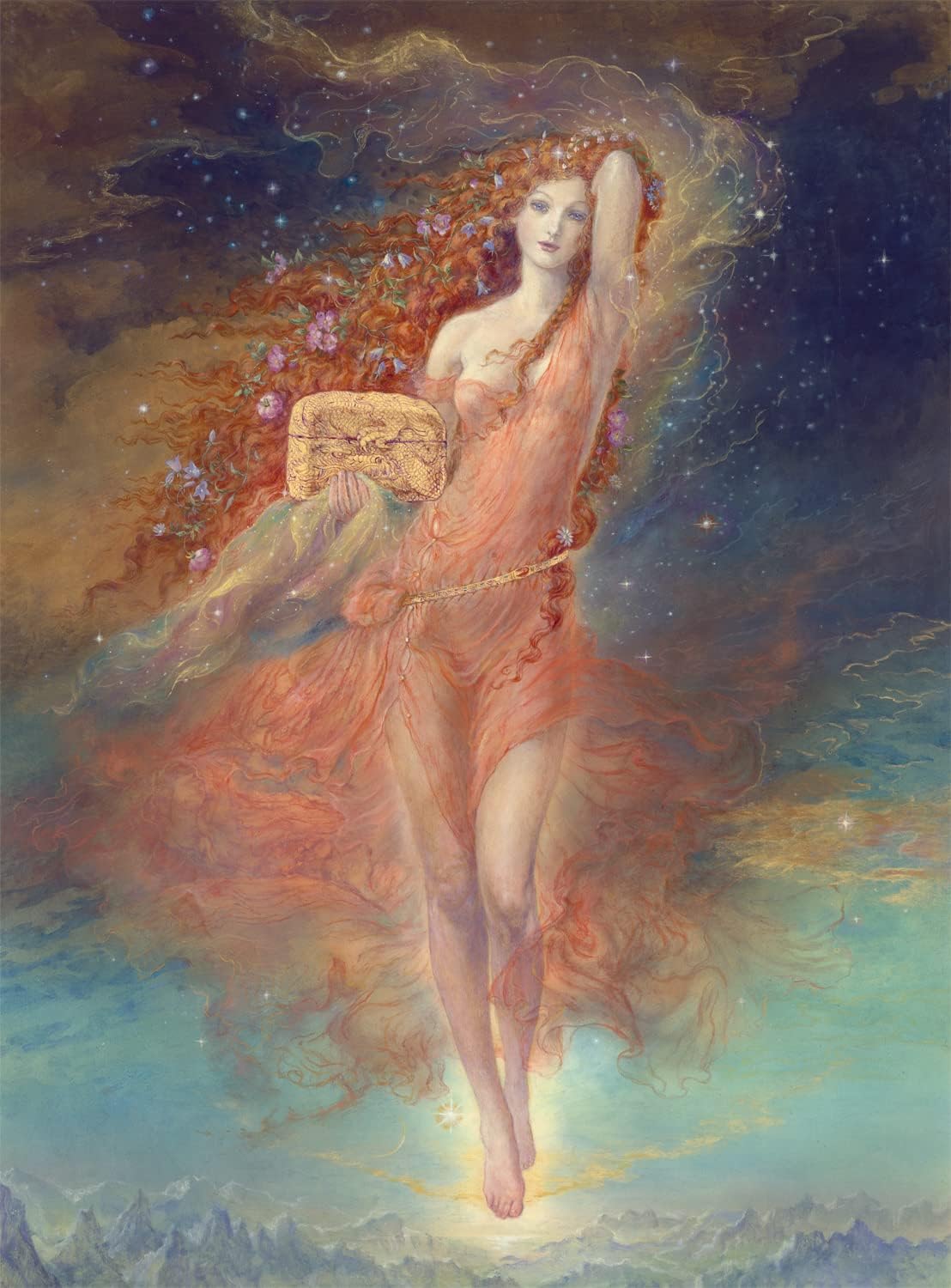
| Author Note: | If You Would Like To Join the Japanese Poetry Club, please check my author notes |
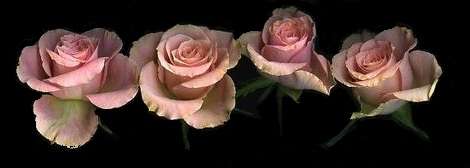
| Author Notes |
SIJO poem is a traditional Korean poetic form related to haiku and tanka. Sijo is comprised of 44-46 syllables. Themes can be romantic, metaphysical, reflection, or spiritual. Originally it was written in four lines but it's okay to write it in more. THE FIRST STANZA IS THEME: 3,4,4,4; THE SECOND STANZA IS ELABORATION: 3,4,4,4; THE THIRD STANZA IS COUNTER THEME: 3,5.; THE FOURTH STANZA IS COMPLETION: 4,3
Thank you very much for taking the time to read and review my poem. Gypsy "The poet waits quietly to paint the unsaid." Atticus picture from pinterest |
![]()
By Gypsy Blue Rose
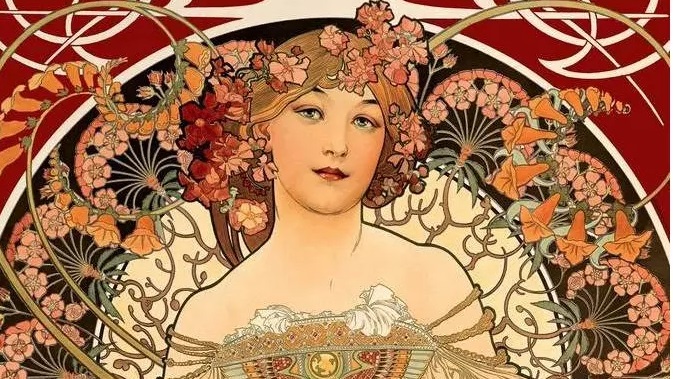
WHO ARE YOU QUIZ
This quiz is for the "Finding Your Muse Club members" but other fanstoriansare welcometo try. The quiz purpose is to get to know each other better. Also, to find inspiration to write.
The club is mainly for women but men are welcome.
( I copied the blank quiz in my author notes in case non-members want to try it. )
WHO ARE YOU QUIZ
Question - What's your favorite season? And why?
= Answer = Autumn because I love the crisp cool air and the leaves change of colors
Question - What is your astrological sign?
= Answer = Virgo
Question - What is your Chinese zodiac sign?
= Answer = Dog
Question - What is your Native American Spirit Animal?
= Answer = Wolf
Question - What do you like most about yourself?
= Answer = My kindness and creativity
Question - How do you decompress after a stressful day?
= Answer = Write poems or prose; creating beautiful presentations; hug my grandson, Atticus; breathe meditations
Question - What's your favorite quote?
= Answer = I have several ones:
"To the world you may be just one person, but to one person you may be the world."--Dr Seuss
"In this life we cannot always do great things. But we can do small things with great love." - Mother Teresa
"The desire to reach for the stars is ambitious. The desire to reach hearts is wise." -- Maya Angelou.
"Keep your hands off the chocolate and no one will get hurt" - unknown
"Good friends help you move, great friends help you bury the bodies." - unknown
"We are not meant to be perfect. We are meant to be whole." - Oprah Winfrey.
"Learn the rules like a pro, so you can break them like an artist."-- Picasso
"A friend is one who overlooks your broken fence and admires the flowers in your garden."-author unknown
"I would die happy at the end of day if I could see the sunset in my lover's eyes.
"Happiness is an uphill battle. Wear the good shoes." -- Kurt Vonnegut
Question - What was the last thing that made you laugh?
= Answer = My silly grandson
Question - When you were growing up, what did you think you were going to be when you were an adult?
= Answer = A Spanish Tapas restaurant owner with room for local artists, poets, and musicians.
Question - What's your dream job?
= Answer = Teacher
Question - What is your biggest goal in life?
= Answer = To be a good mother, a good grandmother, a good friend, a good poet, a good and teacher
Question - What makes you feel accomplished?
= Answer = my poems and presentations
Question - What's on your bucket list this year?
= Answer = Find the perfect home for me and my family
Question - What would you do if you won the lottery?
= Answer = Take care of all my children's and grandkids' and my needs and wants; travel around the world; get a vacation house by the beach; get a personal health guru; buy fabulous clothes and jewelry. Support important democratic policies; invest in education: buildings, art programs, and better pay for teachers.
Question - What has been your biggest accomplishment?
= Answer = motherhood
Question - What's the biggest lesson life has taught you?
= Answer = I'm good enough, I'm beautiful the way I am, and I don't need a man to be happy
Question - If money wasn't an issue, what kind of business would you open up?
= Answer = Spanish Tapas Restaurant
Question - What is your favorite memory?
= Answer = A trip with my exhusband to meet our families in Spain and Boston
Question - Do you easily accept compliments?
= Answer = Yes, when they are genuine
| Author Notes |
Finding Your Muse Club Event - Who Are You?
(If you want to take the quiz, copy and paste the quiz below) WHO ARE YOU? QUIZ for the "Finding your Muse Club" Question - What's your favorite season? And why? = Answer = Question - What is your astrological sign? = Answer = Question - What is your Chinese zodiac sign? = Answer = Question - What is your Native American Spirit Animal? = Answer = Question - What do you like most about yourself? = Answer = Question - How do you decompress after a stressful day? = Answer = Question - What's your favorite quote? = Answer = Question - What was the last thing that made you laugh? = Answer = Question - When you were growing up, what did you think you were going to be when you were an adult? = Answer = Question - What's your dream job? = Answer = Question - What is your biggest goal in life? = Answer = Question - What makes you feel accomplished? = Answer = Question - What's on your bucket list this year? = Answer = Find the perfect home for me and my family Question - What would you do if you won the lottery? = Answer = Question - What has been your biggest accomplishment? = Answer = Question - What's the biggest lesson life has taught you? = Answer = Question - If money wasn't an issue, what kind of business would you open up? = Answer = Question - What is your favorite memory? = Answer = Question - Do you easily accept compliments? = Answer = If you would like to join the club, click here Thank you for reading and reviewing my quiz Gypsy |
![]()
By Gypsy Blue Rose

I want not to desire you
and desire not to want
but if I can’t touch you again
I don’t need my hands …
a n y m o r e
if I can’t call your name
I don’t need to talk
and if I can’t hear you sing
I don’t need love songs …
a n y m o r e
if I can’t think about you
I don’t want my mind
to forget our love
and forget to write …
y o u r l o v e p o e m s

| Author Notes |
I manage the Finding Your Muse Club. This week we are writing about Love. If you want to join the club, just click on the club link below and look for the Finding Your Muse club. It's free and every week we have a new prompt to inspire you.
painting: "The Kiss" by Joseph Lorusso Thank you for reading and reviewing my poem, Gypsy |
![]()
By Gypsy Blue Rose

| Author Note: | If You Would Like To Join the Finding your Muse Club, please check my author notes |
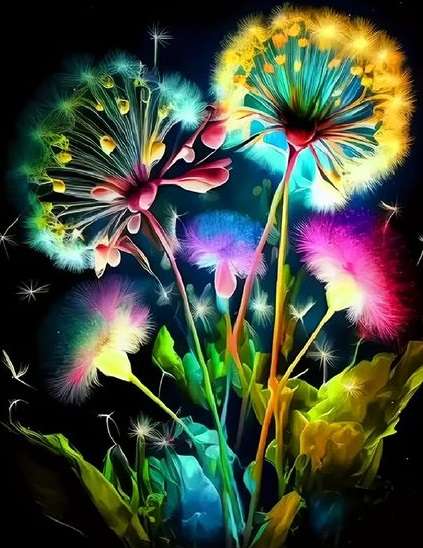
| Author Notes |
Thanks to Helen (Lyenochka) for suggesting to read Solomon's Song of Songs. I loved it and was inspired to write this free verse.
This week's event for the Finding Your Muse Club is to write a favorite bible verse or spiritual poem. I chose Solomon's Song of Songs 1:1 - 8:14 to read Song of Songs, click here Thank you very much for reading and reviewing my poem. |
![]()
By Gypsy Blue Rose
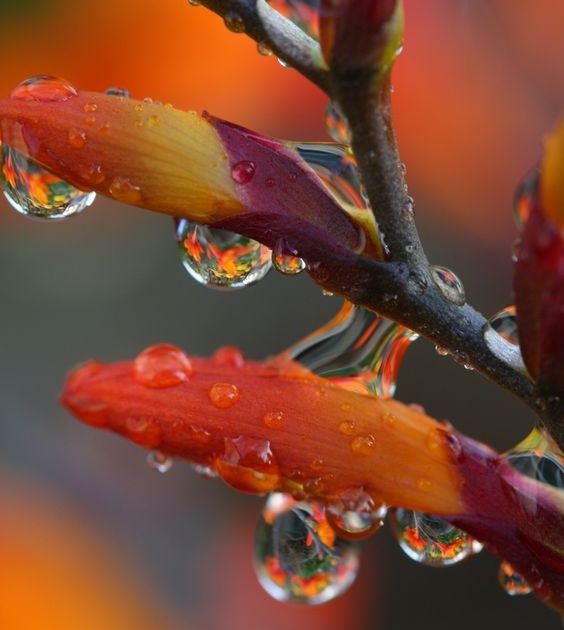
| Author Note: | If You Would Like To Join the Haiku Club, please check my author notes |
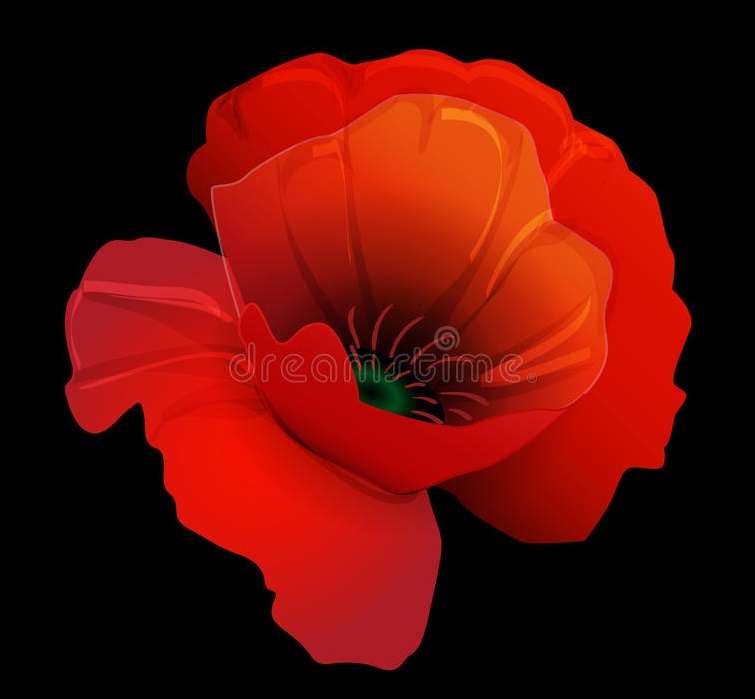
| Author Notes |
HAIKU is a Japanese short unrhymed poem that uses imagistic language to express the essence of a deeply felt moment in time. It resonates on a deeper level, leaving the reader enlightened and making an insightful connection between the top two lines and the last one, called the SATORI. HAIKU uses a dash to pause before the SATORI. It was created in the 17th century by Zen Monk, Matsuo Basho. Haiku alludes to a season of the year. In Japan, haiku is written in 17 syllables and three lines ( 5/7/5) but in English is 17 syllables OR LESS because English and Japanese syllables are different. Avoid capitalization (except proper names) and punctuation.
click here to read haiku examples click here to read haiku rules click here to read why is 5/7/5 OR LESS rule Thank you very much for taking the time to read and review my poem. Gypsy "Poetry heals the wounds inflicted by reason." - Novalis pictures from pinterest |
![]()
By Gypsy Blue Rose
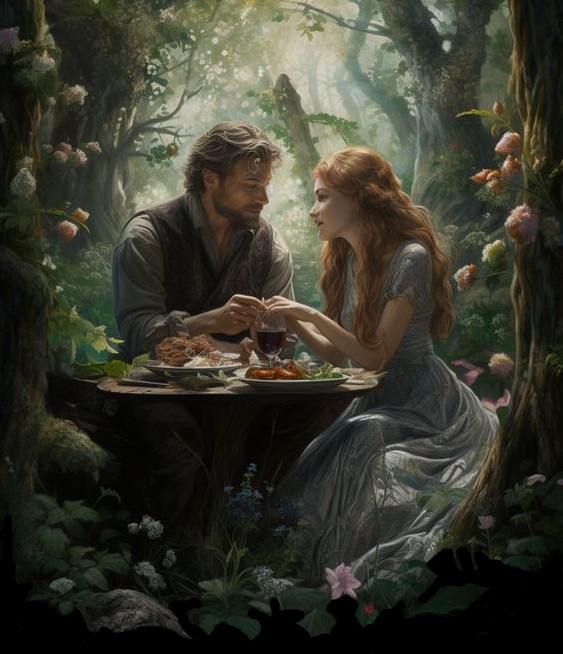
| Author Note: | If You Would Like To Join the Japanese Poetry Club, please check my author notes |

| Author Notes |
A Love Sedoka: is a Japanese unrhymed love poem that was created in the 8th century. FORM: 5/7/7 - 5/7/7. In the first verse (5/7/7) one lover poses a question to another. The second verse (5/7/7) is the lover's reply.
more information about Sedoka and Katauta Thank you very much for taking the time to read and review my poem. Gypsy "The poet waits quietly to paint the unsaid." Atticus |
![]()
By Gypsy Blue Rose
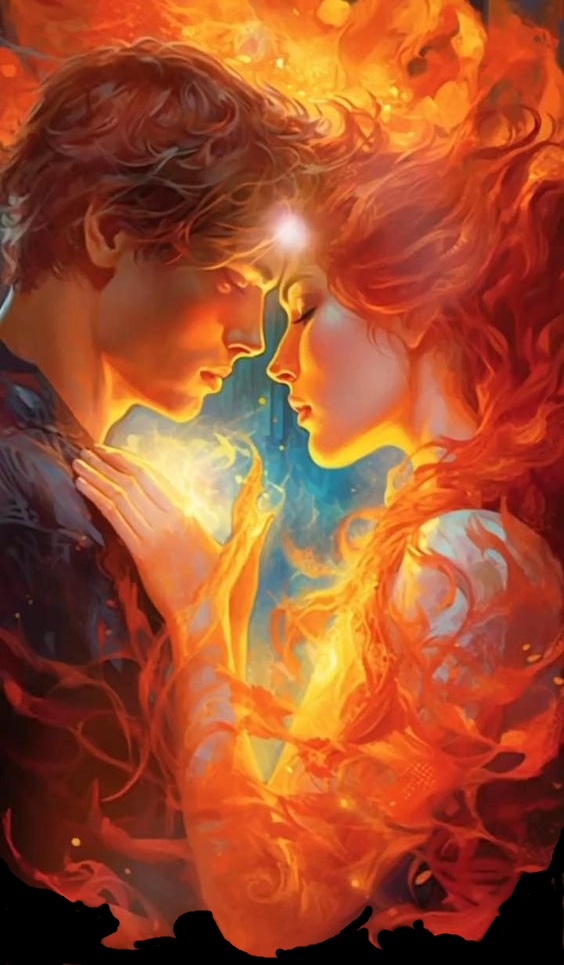
| Author Note: | If You Would Like To Join the Japanese Poetry Club, please check my author notes |

| Author Notes |
An Ekphrastic poem is inspired by a picture.
Thank you for reading and reviewing my poem, Gypsy |
|
You've read it - now go back to FanStory.com to comment on each chapter and show your thanks to the author! |
![]()
| © Copyright 2015 Gypsy Blue Rose All rights reserved. Gypsy Blue Rose has granted FanStory.com, its affiliates and its syndicates non-exclusive rights to display this work. |
© 2015 FanStory.com, Inc. All Rights Reserved. Terms under which this service is provided to you. Privacy Statement